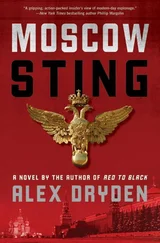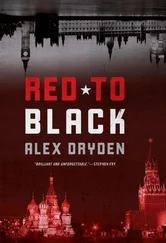She reached the foot of the clanking, rusted metal steps that led from the upper deck of the Kalydonia ferry to the dock and then waited in line with the other passengers on the windswept quay at Odessa’s customs and border post.
It was January 16. Tomorrow would be the first round of the presidential elections in Ukraine. That was a mere coincidence, as far as she was concerned. She had come to the country for another reason. She had come to make a contact.
There would be a prearranged drop-off, and then, if all went well, she would make the pickup. If things went according to plan then it would be a two-to four-day round-trip for only a few minutes of active engagement. Her assignment was to return with documents—they were military blueprints, Burt Miller had told her. In any case, they were the kind of documents that could only be delivered by hand and not electronically, even if that were advisable in the porous world of electronic communication. The provenance of the documents was someone senior at the Naval Ministry, she’d been told, as well as a core KGB officer who had turned against his country and now supplied information to Cougar as an agent. But it wouldn’t be the agent himself who made the delivery. The agent would have a courier and he or she would be making the drop.
Anna cast her eye around her fellow passengers in a noncommittal way as she waited in the line on the quay. There were mostly Ukrainians and Russians who had been on the boat’s manifest, returning from temporary jobs in Turkey or from shopping at the duty-free malls in Istanbul with their greater choice of international brands. There were also a few Turks who, no doubt, had business of one kind or another in Odessa. Odessa had once belonged—way back in its history—to the Ottoman empire, the Porte of the Sultan, and the Turks still plied their trade here. But there were no tourists on the boat at this time of year. Odessa was a seaside holiday destination that burst into life in the spring and summer. Now, in January, the boat was only half full.
After taking a casual look at the passengers nearest her, Anna didn’t look around any further to spot who it was who was tailing her. She just waited quietly in the line. She’d seen nobody observing her on the boat but, nevertheless, she knew now. The line shortened and she neared the front—and the border post. She wondered if they would act now before she was through. Most likely they would wait, she thought. Those would be their orders, she was now sure of that, too.
At just under six feet in height, and with long legs that might easily give the impression she was an athlete or a dancer, she was taller than most of the others in the line. And she was evidently a lot fitter, more alert. Any other person feeling they were being watched would have been nervous, would have looked around, wanting to be sure, to see the evidence. But Anna didn’t just act the part of unconcern—she was supremely aware of the danger of her situation—she actually was unconcerned. In her core, she knew any anxiety now would interfere with the clear passage of her thoughts. Hers was a cold awareness.
Now, as she reached the head of the line, the Ukrainian border guard almost snatched her false American passport, then studied it closely and made a great play of staring at her face. It was a face that men stared at without such an excuse; a face with a pronounced bone structure that took the eye from her curved, full mouth over a fine Slavic nose to the high cheekbones on either side, and then to her eyes, deep blue and penetrating, so that the guard found he could not look back into them for very long. She had blond hair, cut to the top of her shoulders, and it hung in a single thick fold. She stared back at him and, for a moment, he felt as if it were she who was deciding whether to admit him to her country, rather than the other way around.
But though she stared back at him, she barely noticed him. The danger was behind her, not from the guards at the post. They would be Russians behind her who were watching her, not Ukrainians, and they were under orders to follow her. Hers was now a purely animal reaction, tensed, ready for action. It was a sense that existed somewhere beyond her five regular senses, that bypassed unreliable mental processes and was hard-wired to certainty.
After much exaggerated raising of his eyebrows and rocking back in his seat, without a smile the border guard finally allowed her through and onto the territory of Ukraine.
She slung her backpack over her shoulders and looked ahead towards the town. Beyond the border post, there was a wide boulevard that ran perpendicularly along the whole length of the quay. On the far side of the boulevard, she saw a small cobbled lane that ran up a hill through the old port and into the town. She crossed the boulevard and entered the lane.
With the knowledge that she was being watched came a sort of calm. She now let her mind relax and her tensed muscles followed. She continued to walk purposefully up the short hill, leaving the boat and its passengers behind her. She looked neither right nor left nor behind her. She didn’t need to see the tail yet. She was thinking of only one thing at this moment, that it always made things more straightforward once a potential assassin—or maybe there was more than one out there in the city’s undergrowth—came to you.
Throughout the voyage from Istanbul she had remained mostly in her cabin, emerging only very early in the morning at the restaurant for breakfast or in the quiet hours after midnight belowdecks, behaving in a manner that any observer would, perhaps, have described as pacing or even prowling. Otherwise she’d had food and drink sent down to her first-class accommodation. A storm had lashed the Black Sea for the duration of the crossing—it had been an uncomfortable voyage—and, like her, many of the passengers had stayed out of sight. Her absence wasn’t noticeable. The upper deck, the sea deck, had anyway been put out of bounds by the captain due to the storm, and the regular partying and drinking that was a common feature on the crossing to Odessa was muted.
At the top of the short hill that led from the harbour she came to an intersection of the cobbled lane with a main thoroughfare and she crossed to the other side. Even bending her head and now covered with a long hooded jacket that came halfway to her knees, she was a commanding figure compared to the other pedestrians. On this crowded boulevard her height was distinctive. But it was the way she walked that drew attention as much as anything else. She walked with a smooth stride, as if on a long trek, and she seemed to insinuate herself along the pavement, as if her feet barely touched the ground. Hers was a catlike walk. Prowling was not a bad description.
Bare trees, their branches carefully pruned back to the trunks, lined this second boulevard on both sides. She looked curiously to left and right. She hadn’t been in Odessa for several years, from before the time she’d defected from the KGB. But Odessa was as she remembered it and had always been: a stylish city, its pride deriving from its past first as a Russian imperial naval base, then from its heroic Soviet resistance against the Nazis when much of the whole city had been destroyed. More recently, since Ukraine’s independence in 1991, this proud history had come to be mixed with modernising influences that sought to bring the city into the twenty-first century. A civic pride that actually derived from the city’s military standing bloomed here, publicly, on the streets, more than in most post-Soviet cities.
Despite her commanding presence, she lost herself head down in the crowds of pedestrians. The clean, swept streets were busy at this time of the morning. People were going to work. Like her they also walked head down in the rain, and those who passed her on the pavements were huddled in coats and hats. It had started to rain as she got off the boat and now it was coming down harder. She pulled the hood of her jacket farther over her forehead. She walked along the busy morning pavement quickly.
Читать дальше












